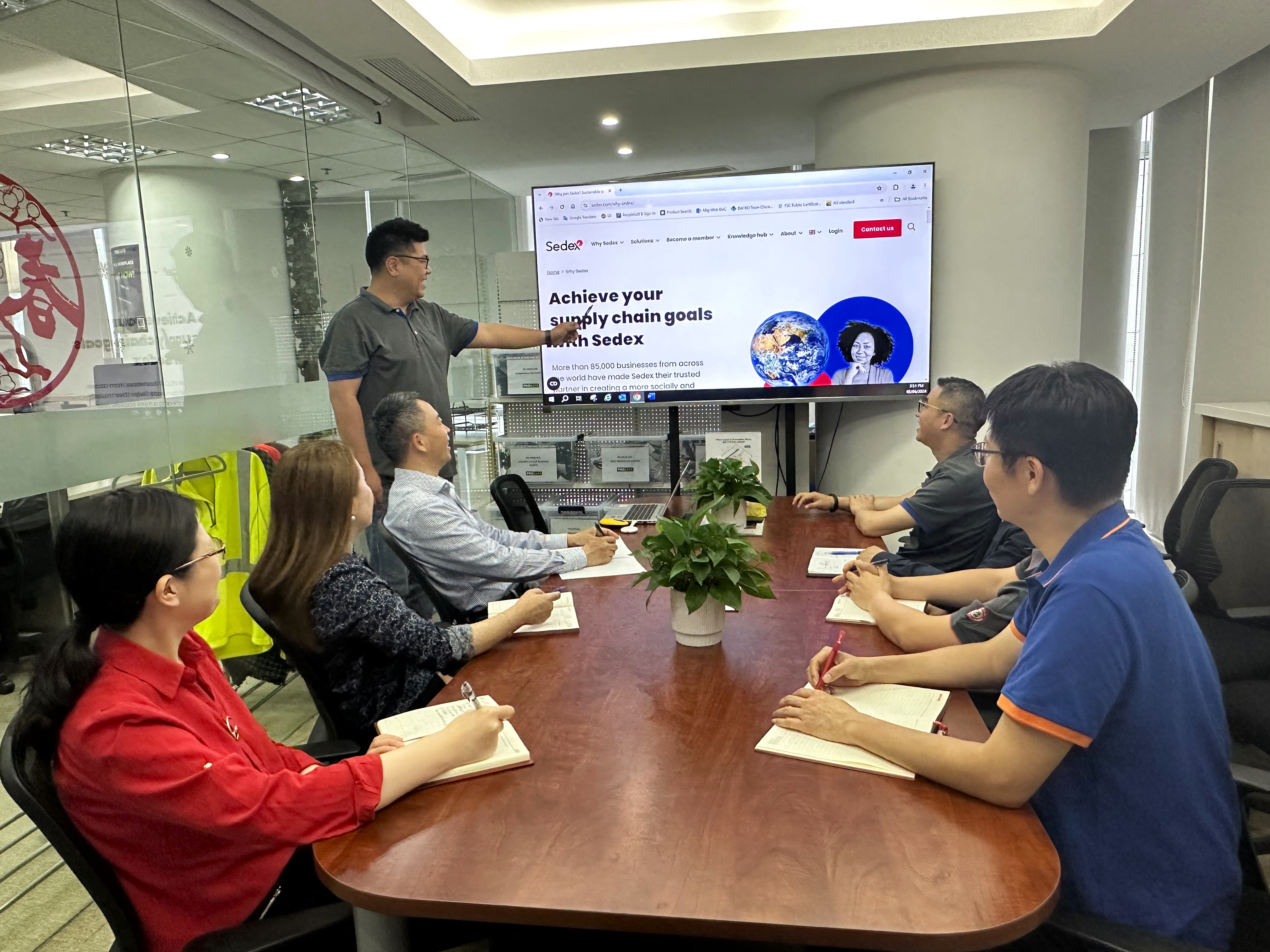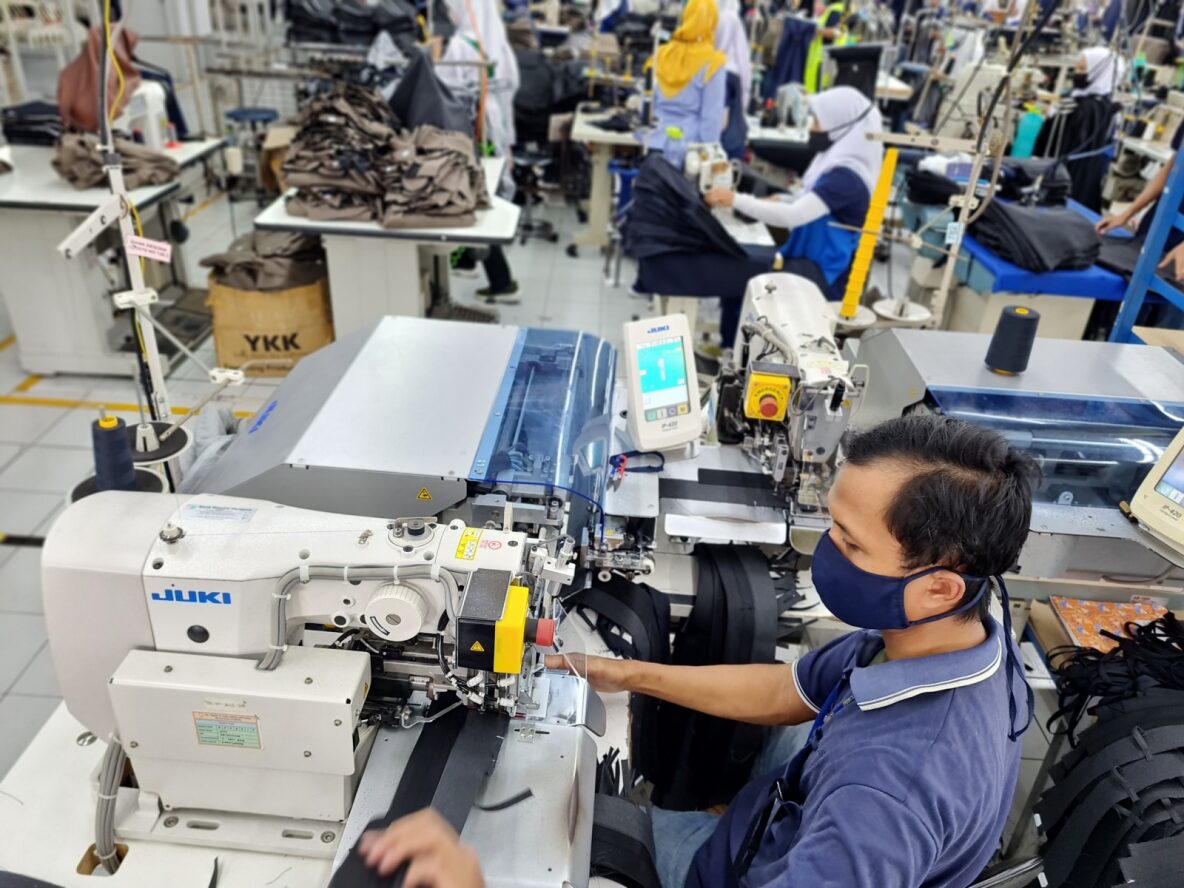
Industrial and Safety - Ethical sourcing
The Industrial and Safety division remains committed to establishing strong and respectful relationships with suppliers and building confidence in ethical sourcing practices with direct suppliers — both own-brand and customer-branded product manufacturers. This includes sourcing products in a responsible manner while working with suppliers to improve their social and environmental practices.
Each business unit manages its own risk-based ethical sourcing strategy and has in place a well-embedded risk-based ethical sourcing program and framework underpinned by a business unit-specific Ethical Sourcing Policy.
Each business unit utilises the SMETA 6.1 audit methodology, and other social compliance audit types conducted by third-party audit providers certified by the Association of Professional Social Compliance Auditors (APSCA) to assess suppliers against local laws and each business’s respective ethical sourcing policies.
For local manufacturing in Australia, Workwear Group and Blackwoods are accredited to Ethical Clothing Australia, a joint industry and union-based initiative that aims to protect workers in the local textile clothing and footwear industry and make sure they are receiving their legal entitlements and working in safe conditions.
During the reporting period, the division undertook 275 assessments of suppliers and manufacturers and supported 236 independent third-party audits. Of those non-conformances detected during the reporting period, 39 per cent were remediated. The Division continues to remediate open non-conformances in line with audit timeframes.
Beyond own-brand goods for resale
Blackwoods continues to embed its Preferred Material Due Diligence Program and National Brand Risk Management Program in order to gain better understanding of risk management and establish mutual recognition or process improvements with its international and national brands. Blackwoods has mutually recognised 20 international brands on their approach to ethical sourcing.
Workwear Group’s approach to goods not for resale and service providers remains unchanged, with all new suppliers undertaking appropriate risk assessment and further onboarded by signing the Ethical Sourcing Policy and supply contracts containing Modern Slavery clauses.
Customer engagement and information requests
Industrial and Safety regularly deals with government and non-government businesses across industries including but not limited to defence, manufacturing and mining, many of which are seeking greater transparency of their supply chains. The division provides these customers with opportunity for collaboration on ethical sourcing, modern slavery risk management and broader sustainability initiatives. The division also continues to respond to customer requests, insights sessions and self-assessment questionnaires on Modern Slavery risk management.
Grievance mechanisms
Worker voice remains integral to the governance of Industrial and Safety’s business unit ethical sourcing programs and is one way in which the effectiveness of the programs can be measured. Blackwoods, Bullivants and Workwear Group continue to deploy grievance mechanisms across selected manufacturers in mainland China, Taiwan, Vietnam and Indonesia, with expansion during the year into Bangladesh, Sri Lanka, India, Pakistan and South Korea. 149 factories participate in Worker Voice, and all their employees are able to scan a QR code to raise or voice concerns, which are then investigated by a third party or the division.
Training
The Industrial and Safety division continues to train employees, customers and suppliers on ethical sourcing and modern slavery.
The division achieved positive feedback and response by providing training and assistance before and after annual audits for those suppliers who have difficulty in preparing for the audit. It then worked with those suppliers to establish an effective corrective action plan to close breaches in a timely manner.
During 2024, Blackwoods developed an educational video in English and Mandarin that talks to the key requirements of its Ethical Sourcing Policy. This will be deployed during 2025.
Bullivants delivers both pre- and post-audit training to own-brand suppliers, which aim to provide broader context to its Ethical Sourcing Audit Program, facilitate any questions suppliers may have regarding the audit process and further strengthen the remediation process.
NZ Safety Blackwoods has developed a specific training tool for its sales team to build team member confidence and strengthen customer conversations and tender responses regarding the business unit’s commitment to human rights and compliance with upcoming legislation
Governance
Blackwoods has a Human Rights and Ethical Sourcing Framework, which is guided by the United Nations Guiding Principles (UNGPs) Reporting Framework. The framework is centred around nine pillars providing governance and structure on emerging risks and opportunities, managing stakeholder engagement and identifying best-practice approaches.
The Blackwoods leadership team has overarching responsibility for identifying and managing any material risks, and the Human Rights Steering Committee and Audit and Risk Committee support the direction of the framework. Blackwoods’ Ethical Sourcing Policy and supplier contracts outline the minimum standards for suppliers, drawing upon the local law of the countries in which it operates, as well as standards such as the International Labour Organisation (ILO) Conventions.
Workwear Group continues to strengthen its program governance with manufacturing integrity through its Group Trust and Verify Audit Program, which has been successfully implemented in China, India and Bangladesh.
Group Trust and Verify Audits are conducted on suppliers located in high-risk countries to verify production is occurring at Workwear Group-authorised factories. This is achieved by auditing purchase orders, which allows Workwear Group to confirm the work specified in the order is being carried out internally at the designated stage of manufacturing, rather than being subcontracted out to external parties without authorisation. The audit also includes a set of questions that cover Modern Slavery and Ethical Sourcing program requirements.
The process acts as both a risk assessment and traceability tool. It guides compliance with subcontracting regulations and helps to maintain control over the production process. If the audit raises any issues, Workwear Group works with the supplier to remediate the situation. An exit strategy is used as a last resort if remediation efforts have been exhausted and unsuccessful.

